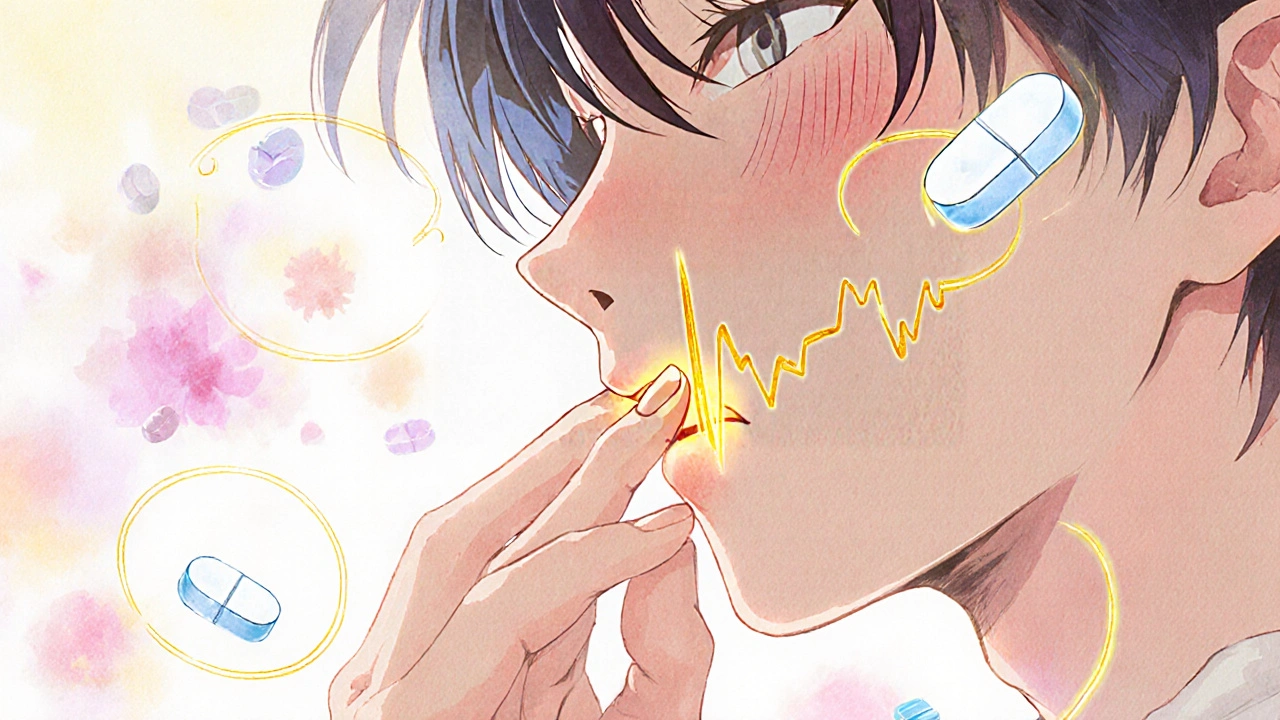Herpes Labialis: Causes, Triggers, and What Actually Helps
When you feel that familiar tingling around your lips, you know what’s coming: herpes labialis, a viral infection caused by the herpes simplex virus type 1 (HSV-1) that results in painful blisters on or near the lips. Also known as cold sores, it’s one of the most common viral skin conditions worldwide—nearly 70% of adults carry the virus, even if they never show symptoms. Unlike chickenpox or the flu, herpes labialis doesn’t go away once you get it. The virus hides in your nerve cells and wakes up when your body is stressed, tired, sunburned, or fighting another illness.
It’s not just about the blisters. The real issue is the cycle: one outbreak leads to anxiety about the next, and that stress can trigger another flare-up. People often blame spicy food or poor hygiene, but the truth is simpler—HSV-1, the virus behind herpes labialis spreads through skin-to-skin contact, like kissing or sharing a drink. Once it’s in your system, it stays. What changes is your body’s ability to keep it quiet. antiviral treatment, medications like acyclovir or valacyclovir that stop the virus from multiplying can shorten outbreaks if taken early, but they don’t cure the infection. Over-the-counter creams help with pain, but they won’t stop the virus from spreading.
What you can control: sunlight, stress, sleep, and immune health. Sun exposure is one of the top triggers—use lip balm with SPF daily. Lack of sleep or a bad cold can knock your defenses down and let the virus resurface. Some people notice outbreaks after eating nuts or chocolate, but there’s no solid proof those foods cause them. What does matter? Keeping your immune system steady. If you get outbreaks often, talk to a doctor about daily antiviral suppression—it’s not for everyone, but it works for many.
Herpes labialis isn’t dangerous for most people, but it’s embarrassing, uncomfortable, and often misunderstood. You’re not alone. And while there’s no magic fix, there are real, science-backed ways to reduce how often it happens and how bad it feels. Below, you’ll find practical guides on managing outbreaks, what treatments actually work, and how to avoid spreading it to others—no fluff, no myths, just what helps.
Acyclovir for Herpes Labialis: How to Reduce Pain and Speed Up Healing
Acyclovir reduces cold sore pain and heals herpes labialis faster when taken at the first sign of tingling. Learn how it works, dosing tips, side effects, and how it compares to other treatments.
READ MORE
